Introduction
Have you ever had food poisoning?
When we think of food poisoning, we usually think of it as an acute issue that’s over as soon as the nausea and the vomiting and the incessant bathroom visits are over.
Unfortunately, that’s not always the case.
On this week’s episode of The Goodness Lover Podcast, we sat down with Shivan Sarna – TV personality and author of "Healing SIBO: Fix the Real Cause of IBS, Bloating, and Weight Issues in 21 Days" – to talk about the real root causes of IBS (Irritable Bowel Syndrome) and her step-by-step recovery roadmap.
Watch the Interview:
Shivan revealed:
🎢 How food poisoning early in life can lead to a lifelong fight with SIBO
🔦 Other root causes of IBS that next-to-no-one is talking about
🥝 How to reduce symptoms of IBS and SIBO with the low FODMAP diet
🧪 How to test for SIBO and truly heal the condition
📊 Why it is essential to receive your results from your testing
And much more that you don't want to miss! 🎙
Additional Resources
To connect with Shivan Sharna and discover more of her work, you can find her on Instagram and Facebook. You can also visit her website here.Transcript
Sarah: Hello. And welcome back to the Goodness Lover Show. Today we're joined by a TV personality, Shivan Sarna to talk about the roadmap out of IBS and SIBO.
Matt: Shivan is an incredible person, a dear friend of ours actually. And you're going to learn a lot about these hidden and unknown causes of IBS. She's interviewed hundreds of the world's leading experts, and actually you would say a conservative estimate, hundreds of thousands of people have been through her summits and courses from all over the world. So let's dive in.
Sarah: Well, we are very privileged to have Ms. Shivan Sarna with us today to really dig into the topic of IBS. Thank you for joining us Shivan.
Shivan Sarna: Thank you so much for having me. I love talking about this, weird as it sounds, but I never thought I'd get happy about talking about it. But we need to talk about it more and IBS irritable bowel syndrome is a very unsexy condition and a worse name. And then it's so highly related to a topic that I have been working diligently to train people about and educate and help them to discover SIBO, small intestine bacterial overgrowth, which is the number one underlying cause of IBS. And it can come from, wait for it, the underlying cause, food poisoning, even if it was decades ago.
Sarah: Wow.
Matt: Wow.
Shivan Sarna: And that is a big surprise, right? It's crazy.
Sarah: The big surprise revealed straight away.
Matt: I know.
Sarah: So Shivan, I know this comes after years of interviewing the top experts in the world. We discussed just before that you've maybe spoken to 300 experts in the last couple of years. And through your own process of I guess despair with ideas you've learned all this material, you've distributed out, you've founded SIBO SOS, you wrote Healing SIBO and you've... There it is on the screen there. And you've reached millions in the process. So that's amazing and we're so excited to learn from you today and learn the best of the best that you've gleaned after all this experience. But I guess before we get into it, it'd be great to hear about your story. When did your journey with IBS start and how did you dig yourself out of that?
Shivan Sarna: Well, when I tell my story, I like to do it in a way to educate other people before someone starts yawning and going, "I don't want to hear another story about someone else because my belly's bloated and I'm uncomfy." Know that I'm with you 100% and I'll try to educate you as I tell you my story. And that is that when I was a very young 5, 6, 7, I went to India with my parents and got very, very sick and then went on a field trip where we milked the cows, city slicker girl milking the cows.
And we drank some of the unpasteurized milk because we were being farmers and got very, very sick. And basically after that, I remember my father who's Indian was very tuned into Ayurvedic cleansing type things. Noticed that I wasn't going to the bathroom regularly and he said something to my mom like... Okay, I'm seven, eight years old, I remember this and my mom asked me about it and I was like, "Get out of my business." It was my first experience of really remembering shame around a body function because I was like, "Oh, I can tell something's wrong. Why are you up in my face and my grill?"
And basically after those episodes, I wasn't the same, right? So I was constipated, I was bloaty, I was like little skinny kid, poofy belly. And went through life, always was very careful with my diet because I knew something wasn't right. And so I would try all these alternative things. Even I remember going to a nutritionist at 15 years old. Because I didn't have my license, my mother had to drive me. I have really been experimenting with trying to figure stuff out with me for a very long time.
And fast forward to a very high pressure TV job and being the weirdo because I was gluten-free legit, like seriously, people. But basically I had a random conversation with another gluten-free person at work and she's like, "I'm on these crazy antibiotics. I went to the University of south Florida and I did this weird test where I drank something and I blew into a test tube and now I'm on these intense antibiotics." And I was like, "What?" And it just stuck with me and I was really not doing well because I was also in a moldy building and had been for 20 years.
And by the way, totally disavowed that it could possibly be impacting me, and oh boy, did it impact me. Anyway, I called her back and I was like, "What were you talking about? Explain." And she gave me enough information so that I was able to get tested, got a false negative and lost another 18 months because I didn't have them transfer the test results with the graph to the doctor, it just came back with negative. And getting your test results is really important. Ask for them, you bought them, you own them.
And then I finally found someone who we lovingly called the digestive detective and he spent a miracle two hours with me on my first visit. And while he wasn't originally totally savvy, very savvy doctor, but wasn't totally up with the protocols at the moment of what was going on if you had SIBO, I would just walk in with studies and he'd be like, "Oh good, thank you. They didn't teach me this at medical school. Oh, okay, yep." Then he'd write the script and off I would go. And that's one of the ways that I really got better and was able to manage this condition.
Matt: Wow. So what did that life look like after? What was it like for you to get to the root cause and how did it improve your digestion?
Shivan Sarna: It's weird to be relieved by a diagnosis, right? Like, "Oh, I have SIBO. That's awesome." Right? Like, "Yeah, I finally know what it is," and then you grieve that and then it's a very emotional situation as anyone who's had a chronic condition that didn't know what it was can relate to. I literally dedicated the book to anyone who's had a medical mystery because I definitely had a medical mystery for a very long time.
And what does my life look like after? It's that of managing because I do have the underlying cause of the food poisoning being an underlying higher potential for getting the SIBO back. But I always take my prokinetic, which I can quickly explain what that is. So I do things actively to make sure I don't have relapses. But there is a contentment because I've given up the search and now I'm able to just manage my life in a way that is much more workable.
A chronic condition that is not treated can cause so much havoc in your life. And if you do have a chronic condition and it is treated and treatable, hopefully, your life can be a hundred percent better. Of course, I wanted to be cured after I took my first two weeks of Rifaximin, but I was shocked. I was like, "I'm not better, what's going on?" I called the doctor, I'm like, "This was a bad drug. I don't know." I was very upset because we're so used to the blessing of being able to often take something and get better, but that's not what this is for some people and that was a big wake up call, it was also a big grow up. But there's a peace that comes from knowing that you're doing everything you can to manage something like that. And it's quite empowering, especially if you felt powerless previously.
Sarah: Thanks for sharing. I'd love to talk more about the food poisoning piece because when it comes to food poisoning, this is not spoken about. Everyone just assumes that food poisoning is just an acute issue. Once you get through the symptoms, initially the diarrhea stops, you good. So what is the deal? How can food poisoning just stuff up at digestion long-term?
Shivan Sarna: So food poisoning... And by the way, if anyone's listening to this and is like, "I've never had food poisoning and yet I still probably have IBS and SIBO." Have you ever had the stomach flu or have you ever had a bug, a stomach bug where you're not great for 12, 14, 20 hours, but you're fine, it's no big deal, you're not barfing all the time and it wasn't super dramatic? That can still be enough, it just depends on your body.
But basically what happens is in layman's terms is the bacteria that invades makes your body create an antibody. And that antibody then confuses the mechanism that is the sweeping wave, the crumb cleaner of debris out of the small intestine. And the mechanism is called the migrating motor complex. And when the MMC is not working properly, it doesn't do that sweeping out motion of the last of debris of food, et cetera, and bacteria, you can have an overgrowth of bacteria in the small intestine. And that's what small intestine bacterial overgrowth is.
So that migrating motor complex is the key. What can also harm it would be or harm its action would be adhesions where it's literally scar tissue internally pulling tissue because it's bound and therefore you could have a good MMC, but it doesn't physically move properly because of the plumbing being kinked or whatever. It could be from opioid use, even after you're not an opioid addict but you had anesthesia, then you had to be on pain meds and you weren't on a prokinetic so the migrating motor complex was deeply depressed.
It was the depressant deeply not working basically slowed down and so you didn't allow the sweeping motion to happen as effectively as it could have been so you can still have the bacteria there overgrowing. So there are some odd or unexpected additional ways that you can have the migrating motor complex not work as well and that can lead to SIBO. But the condition is called post-infectious IBS. After the infection of the food poisoning, you get irritable bowel syndrome.
Now not everybody who gets food poisoning gets post-infectious IBS, however, the more food poisoning you have, the more prone to food poisoning in the future you have. I'm sure you too have eaten the same meal and one of you got sick and the other one didn't or we see that at big tables, right?
Sarah: Totally.
Shivan Sarna: The people who did get sick legitimately did have food poisoning, everybody else's immune system fought it off and therefore you weren't able to fight it off, so to speak, and then you make antibodies then it slows down your migraine monitor complex and it's quite the cycle.
Matt: Interesting.
Sarah: So by antibodies, are you saying that your body, is it molecular mimicry? Is an auto-immune response at that point?
Shivan Sarna: It is molecular mimicry. That's such a great question. So it's not like the auto-immune situation that you would have like lupus. There's a scale. There's a spectrum. So it is an auto-immune like function because your body's created these antibodies, but then it is through molecular mimicry where the interstitial cells have cajal on the inside of the small intestine basically get confused, which cracks me up because I never think of the body being confused because I think it's so wise, but ultimately it gets confused and so it doesn't function as properly with the migrating motor complex because of these antibodies mimicking things that are confusing it.
Sarah: Wow. Okay, okay. And so let's... you've mentioned prokinetics a couple of times. Can we get a definition on that before we keep moving?
Shivan Sarna: Yeah. So the word proactive, like forward and kinetic means motion. So a prokinetic is actually something that moves and stimulates your migrating motor complex. And it can be something as beautiful as ginger, it can be something called Iberogast, which by the way, if you take opioids, don't take, read the label. It's a herbal combination that's very famous. It can be Motegrity in the United States, that is a prescription. There are literally prokinetics for people after they take opioids because opioid constipation is a real thing.
Now prokinetics are not a laxative. So you can't really tell all the time if they're working, the only way some people can tell is if they don't get SIBO again, which is kind of sucky. But they are part of the key actually to preventing relapse. You really need to find your underlying cause of why you have SIBO and IBS. And so that's why the blood test called ibs-smart is the blood test to see if you have those antibodies. And even though there's no like, "Okay, you have these antibodies, here's what you can do to cure these antibodies." That cure doesn't really exist.
The answer at least is okay, always do a prokinetic. You now know that you need to do a prokinetic. And I think when you know things that increases your compliance, like I used to be like, "I'll do it occasionally." But once I had that blood test and it confirmed my antibody situation, it really... I don't go to bed without taking it. Like it's I brushing my teeth and taking that prokinetic, it is a ritual and it has helped me so much.
Sarah: Huh. So you did the ibs-smart and you found out that you had I guess food poisoning induced IBS.
Shivan Sarna: Post-infectious IBS from that, yes.
Sarah: Interesting.
Shivan Sarna: It's worth finding out. Some people are like, "Yeah, but I won't." It doesn't necessarily dictate treatment because if you have SIBO which can only be diagnosed by a breath test or an aspirin from an endoscopy. It still gives you really good information about your underlying cause and I think that's super, super valuable.
Matt: So coming from someone that's gone through this journey of themselves as well, it is a very confusing thing, right? You're suspicious for a while, then you maybe get a breath test and you're like, "Whoa, I see it written on a paper." And then you're like, "Now what?" Then you have this obviously entire process, which I know from the thousands of people that have gone through your programs and you've helped over your years of doing this is a very confusing process. And so I know you were showing something with us before the call about how do we see this thing? I thought it was a really cool diagram that I'd love to dive into.
Shivan Sarna: So this is on page 111 of the book, I'm so glad you asked. And this is what we at SIBO SOS call the SIBO Recovery Roadmap. And basically this is the algorithm protocol that was developed by Dr. Mark Pimentel of Cedars-Sinai in Los Angeles and then Dr. Allison Siebecker and Dr. Steven Sandberg-Lewis contributed to it to give it an additional angles. And basically it starts out with, so you think you have SIBO and then it takes you through what to do to test treat and retest, take your prokinetic, do the diet. I mean, it's very systematic so you don't have to be confused.
And this is the technique that Dr. Siebecker teaches in her SIBO procourse to practitioners around the world. This is the foundation of... Like here we have the three treatments, the elemental diet, the herbals and antibiotics. So those are your three treatments. And you can choose one of the three, if one doesn't work, you can try the other one, if that one doesn't work, you can try another one, which is quite unique about SIBO, is that you can do a lot of it yourself because the herbals are fairly readily available.
And you also, if something doesn't work, you can try something else, which is very cool. So often if you're dealing with something, you can like this is the only thing you can do, if it doesn't, you're out of luck. So it gives you a lot of flexibility. What did you do? Did you do herbals or did you do antibiotics?
Matt: The antibiotics route, which I was a little bit nervous about after doing all these interviews ourselves, obviously. But obviously I was told by a lot of functional doctors that they're very specific.
Sarah: The Rifaximin.
Matt: The Rifaximin's very specifics, but yeah.
Sarah: More targeted.
Matt: What do you think about it?
Shivan Sarna: Oh, I think it's a miracle. I do. I think it can be a miracle for people. It is a very unique drug and yeah, I was very scared about doing it. I didn't want to mess up my microbiome. Of course, antibiotics can save your life, bless them. But I try to avoid them, that's one of the reasons why I probably also had SIBO and I was a contributing factor after the food poisoning. So Rifaximin stays in the small intestine. It is the drug given to people who have traveler's diarrhea.
So it makes sense if you're trying to reduce a bacterial load to take a drug that's targeted to that kind of bacteria. And it is very unique in that it stays in the small intestine. It's a fascinating drug and in all your free time, you can research it and see what it does to help the liver, really wild. And Dr. Mark Pimentel is the one who figured out again that that was the right drug and he's also the one who said, "What about using amino acids that are typically just used for a feeding tube that is known as the elemental diet to starve the bacteria instead of just killing it from a blowtorch effect?"
And so actually the elemental diet is the most effective treatment and it's usually 14 days, then you retest, you find out if you still have overgrowth and often people will do a few more days. It used to taste disgusting, like vomit. And that's true, I'm not making that up, it was disgusting. But over the last few years, several companies have created better tasting elemental diets that taste like super sweet... like milkshakes. I mean, they're not something I'm going to go to a restaurant and order, but it is more palatable because that is all you're doing. It is legit a liquid diet.
And if you're worried about losing weight, understandably so, you just have to make sure you're consuming enough calories. So some people actually gain weight because the nutrition is so readily available because that's what the elemental diet does. It feeds you, but starves the bacteria. You absorb the nutrition so high up in your digestive tract that it doesn't even make it to the small intestine. And so that starves them. It's very interesting, very interesting network, very effective.
Sarah: What's in those shakes?
Shivan Sarna: Amino acids, literally the elements of food. But often amino acids are disgusting tasting and so that's why it had such a initially a bad reputation. And some amino acids are sweet, but it's legitimately like the building blocks of food. And you can add some oil to it for the fat, and then you can add some glucose. There's a formula. So on the bottle, if you're getting the tub or whatever, read these directions, follow those instructions.
And Dr. Siebecker has also created a homemade version of it. It's kind of expensive, but going to a lot of doctors not having the condition resolved, having it rob your life of energy and nutrition, really the SIBO, that bacteria in your small intestine overgrowing can lead to malnutrition. So you see those little kids in the pictures of these third world countries and they have those bloated bellies.
Now it could be parasites, it could be a lot of things, but that bloated belly is also sometimes the overgrowth of the bacteria and those bacteria releasing gas, which is why people bloat and, or have distended bellies with SIBO. That is the number one complaint and that is the number one symptom, but it's also diarrhea, constipation or alternating diarrhea and constipation. So it's kind of like backwards, I probably should have said that sooner.
But just in case anybody's wondering like, "Do I have this?" If you can relate to some of those symptoms. But keep in mind, it mimics other things. So it does mimic parasites. So please, please, please get a SIBO breath test. If it is negative and you did the test properly and you're like, "I'm not really... Well, okay. If I don't have that, what do I have?" Get a really good parasite test
Matt: I found it interesting what you're saying with the elemental diet as being amino acids and I was just imagining all the gym rats out there just going, "Man, all those amino acids, this sounds like the best diet ever." And just showing the ignorance, I guess, in the sense of that's out there in the community right now just around what food is and what we actually need for these building blocks. So I was curious to think more about that.
Matt: So if someone that's more in the general audience now, that hears the elemental diet and you just think it's like a gym supplement. Let's take it a step back. To someone that's trying to... maybe they're just a bit annoyed. This is how it started with me. It's just like Sarah was like, "Are you bloated?" And I'm like... I just thought it was just normal to have a bit of bloating there, I guess at my age or something.
Matt: And so someone that's maybe at the start point of trying to work out if they have SIBO or they're a bit frustrated it's imploding, what is the path forward would you think at the start of that map? Where would they begin? What are some simple things they can do before maybe even getting a breath test?
Well, first thing you can adjust your diet. And that means a low fermentation diet. So there are a lot of people talking about IBS and they will say do the low FODMAP diet out of Australia, Monash University, amazing. And then they'll be like, "Okay, bye-bye. That is your life now. You are only going to eat low FODMAP foods and that's going to manage your IBS, have a good day." This is where I go crazy. It makes me nuts because you need a diverse diet.
Low FODMAP has a beautiful thing. It can really reduce your symptoms. Symptom reduction comes from dietary changes with SIBO and IBS. It does not cure it. It does not cure it. Your diet will not care IBS or SIBO. You can manage your symptoms so it feels so much better like within three days, even less for some people, but it is not the only thing. If you can figure out that you had food poisoning and then you can treat it with herbals elemental diet or the special antibiotics, your whole life can get so much better.
You don't have to always be the weird one, right? It's fine with me, but you know what I'm saying. You can really expand your diet. So what are some triggers? Onions, garlic, apples. These are all very high FODMAP foods. Please don't make me say all the letters of what FODMAP stands for. They are carbohydrates that are easily fermentable. And so Dr. Allison Siebecker took it a step further and combined the specific carbohydrate diet, GAPS diet, all these different diets including the low FODMAP diet and made the SIBO specific food guide.
And that is how my book is based on in terms of the 40 recipes, but it also, I label all the other cool diets that we pay attention to, and in the book like including biphasic and all that, which is based on the SIBO specific food guide that she created. So if you want to, first thing, lower your fermentable load and get yourself scheduled for a SIBO breath test, do the prep which is 12 hours of a special diet, that's even more specialized just to reduce feeding the bacteria for 12 hours, fast for 12 hours, it's all laid out from the lab where you get it and then do the SIBO breath test.
You drink some lactulose, which is a sugar that bacteria love, but that you as a human being cannot absorb and then you blow into these test tubes every 20 minutes for three hours. Send it off to the lab, this is one scenario, you can do it in hospitals and in clinics, but I like doing it at home. And then they send you back the results. Be sure to get the graph because that way you can see what the parts per million of the bacteria have been releasing, whether it's hydrogen or methane producing bacteria or organisms.
And then they have a new test called trio-smart in the United States, they're trying to go global. This is the same lab that does the ibs-smart test created by Dr. Mark Pimentel, Gemelli Labs and they're now testing for all three gases. So previously, and a lot of people are just doing hydrogen and methane gases, which is great. If you can't get the trio-smart, don't worry about it. You can only get a two-gas breath test, go for it. But get the test and see if you have SIBO and then you can do a protocol and then you can get better.
And you might have to move the protocol a couple of times, retest after a couple of protocols, a couple of treatment plans so you can see. Because every treatment plan is going to reduce that bacterial load. It probably, if you have a high numbers, won't do it on the first round. And that was also very unusual. Not only could you choose from three treatments, but you may have to do them over again to get where you want to go. But it can be done. It really can be done.
Matt: Interesting. So I know some people in our community are a little bit... well maybe they've brought a SIBO test up with their doctor and they've been met with skepticism. And I would be probably... it would be me not being completely honest if I wasn't... I trusted the test, but I was like, "How accurate is this test?" So for someone that's in that ballpark trying to work out, is answering that question or perhaps have met that cynicism from that doctor, what would you say to that?
Shivan Sarna: I would say that if you do the breath test prep properly, and if the lab you're using calibrates their machines frequently, if they're like air diagnostics in the United States using QuinTron equipment and just fanatical about the calibration, you're in pretty good shape with that. I would worry more about the interpretation than the machinery and the test, and that's why I want everyone to get their numbers so that if the doctor doesn't know how to read it properly, you can have someone else read it.
Also, let's say you're on a borderline between positive and negative. If you are on the borderline or slightly negative but you still have symptoms, most practitioners are going to say that's positive. So you could be like, "No, I see the line is here. And that says negative, but I still have bloating and constipation," that's positive. That's sort of... And there've been all of these consensus and a lot of time and energy put into validating the test. And Dr. Mark Pimentel did that last year, the lactulose breath test.
If you're not going to have the endoscopy, which is very invasive, that is the gold standard and it has been validated. So if a doctor's not up to speed on that, then I feel like you can walk in with the studies and the results and really help to convince them. And if you're trying to find a new practitioner to help you, when you're calling to make the appointment, speak to someone at the front desk and ask them, "Does your office do SIBO breath testing?" And if they're all like, "Huh?" Then you just need to keep looking.
Matt: Well, that's a-
Sarah: Great steps there. So if someone's like, "Step number one, do I guess, have some symptoms here? Am I struggling with constipation possibly like a diarrhea, loose stools or bloating?" So then they're like, "I might have an issue here. I'm going to try the low FODMAP diet and see if my symptoms get relieved a little bit. And at the same time I'm going to order the SIBO breath test, do the test, get the results, actually receive the charts."
Shivan Sarna: Right. Thank you, I'll get on that.
Sarah: And then I guess if it's positive, start to treat SIBO. But then at what point would you maybe say get the ibs-smart test to see why you got it in the first place? Is that necessary or is that if you're just extra keen?
Shivan Sarna: It's just extra keen. I was not extra keen in the beginning because I hate giving blood, I hate needles. But once I did it, I was like, "Ooh, I wish I'd done this sooner." Because I think more people are, as I said earlier, are compliant when there's a because. Like if I have a supplement, you better remind me of why I'm taking it or I'm not going to take it. You get pill fatigue. So you sometimes need that extra motivation and validation as to your why and I think that that kind of data really helps.
Sarah: Great.
Matt: You'll be fine next week, you love getting your blood taken.
Sarah: Yeah, I do.
Shivan Sarna: Really.
Sarah: Well, I don't love it, but I just don't mind-
Matt: Well, now we've been in there and I've been like, "Don't look at me, don't look at me. I'm fine. I'm fine." Sarah's like, "Oh, it's cute, baby. You're struggling." That's here Sarah watching the blood come out.
Sarah: You're like, "Okay, I'm going to go in." I'm like, "Okay." And I'm like, "Good job." Couldn't feel that at all.
Shivan Sarna: Oh my gosh.
Sarah: Why are you taking a lot today? It really doesn't bother me.
Shivan Sarna: I would literally have people come to my house. I have a mobile phlebotomist and I warn them, I'm like, "Let's just do this lying down. I'm just going to get on the floor right now."
Sarah: Wow.
Matt: Wow.
Shivan Sarna: And here's the glass of orange juice with pure sugar for after the fasting. And as soon as you pull that needle, I am swigging this. And I'm watching kitty-cat YouTube videos to get my mind off of it. I got ice cubes. I got the freezing spray. I got people calling me on the phone. I'm ordering groceries, doing anything to distract myself. So Sarah, we have so much in common with Matt.
Sarah: I'm like a pin cushion too because I have really tiny veins. So they usually are like jabbing at me for ages.
Shivan Sarna: I am too.
Sarah: And then I'm like, "Oh, I'll get my friend and see if she's any better." And they have a go for a while. So good thing I'm okay with it. That would be much worse if I didn't like-
Matt: Yeah, at least-
Sarah: Well, I won't say I like needles but I'm neutral.
Matt: We were getting a lot of blood done at the time, so I'm trying to prep myself up a little bit, but-
Sarah: Okay. So and then if you did get a positive to the ibs-smart, you have some antibodies situation happening, basically you're on a prokinetic for life, is that it?
Shivan Sarna: So that's a great question. I'm very happy to be on a prokinetic for life because I've had the condition for so long. But there're some clinical experience of where the antibodies can go away over time because then you can get better over time, which is very nice, that's very good news. But for me, making sure my migrating motor complex is moving properly is totally worth it. And if you don't like the idea of a pharmaceutical drug, then you can do the ginger.
I mean, there are some natural prokinetics but if you have lower esophageal reflux, you will not want to do ginger because it will burn your esophagus because of the ginger burn is what they call it. So you have to play around, you have to experiment, you have to have resilience. And I guess that's the message of hope I want to leave everybody with, is that there are answers. It's not just about being on a special diet. You can eat more food eventually.
You don't have to starve your microbiome of certain foods. That doesn't mean you'll be eating garlic for breakfast, lunch, and dinner in the future. But there are a lot of workarounds, there are a lot of people that have gone before you and have figured a lot of this out. And so while it can be very confusing and frustrating, you're not alone. There is support, there are answers and it doesn't have to... really, it can be so expensive in the search.
The search is expensive. That's why I want to educate people as much as possible to help save them time, energy, and money so that they can get their quest, the learning curve much more shallow instead of so high because other people have been there before and they can guide you. And so that's why I wrote the book, that's why did the summits, that's why I have this big Facebook community SIBO SOS, because ultimately the SOS has come to mean save ourselves.
Matt: That's a beautiful message.
Sarah: Love that.
Matt: And we'd love to reiterate just what you were saying there in the sense that you've been so diligent with this community with this topic for so long and you've handled it with great care. And I know when we've ever sent our community your way when you're doing another summit or whatever, that people love it and it's such a great event. So thank you for the work that you do.
Shivan Sarna: Thank you.
Matt: And if someone's listening to this and they're thinking, "Hey, I need an extra guide in this space, an extra bit of light to help me on this journey," where is the best place for them to go?
Shivan Sarna: Go to sibosos.com. And we have SIBO Recovery Roadmap Course available. You can download that algorithm for free so you can check it out. But then the course takes you step by step, we hold your hand. There's also a great Facebook community, SIBO SOS with 20,000 people and they're talking about it nonstop 24/7 around the world. So you do have a lot of support, sibosos.com.
Sarah: Excellent. And then the book, where can people get their hands on that wonderful-
Shivan Sarna: Thank you. It is on Audible, it's on Amazon. It's getting translated into Polish, thank you.
Matt: Polish?
Shivan Sarna: And I'm very excited about that.
Sarah: [inaudible], they would say.
Shivan Sarna: I can say multiple languages now. And the Audible was done by an award-winning actor. She actually did the vice-president of the United States audible book. I was very happy.
Sarah: No way.
Shivan Sarna: I was like, "Ooh, fancy, fancy, fancy."
Matt: That is pretty fancy.
Shivan Sarna: It's just the word when it's cool. And it's on Kindle and Barnes & Noble where most books are sold. So I hope everyone can get ahold of it. Seriously, even if I didn't write this book, this is the book I wish I had had when I first figured out that SIBO even existed. And I went to write a book, realized how hard it was to write a book and I like, "You know what? I'm a TV person, I can do a summit." And so then I did the SIBO SOS Summit 1, SIBO SOS summit 2, the IBS and SIBO SOS Summit, the Microbiome Rescue Summit and I'm pulling talks from each one of those and making it what we behind the scenes call the Ultimate Summit.
And it's going to be the SIBO and IBS Summit, which is going to have highlights from each one of those summits. So that is a lot of time consuming information. This is the highlight reel here and it's under 20 bucks. So it's one of the best investments you can make if you want to figure out how to really crack the code of your SIBO. So thank you. Thanks for having me guys.
Sarah: That's wonderful.
Matt: Definitely check out her book. And I think that's a great reflection you said we live in a day and age where you can say SIBO to doctors now and to particularly people that have been trained in it and you're not going to be met with blank faces. It's like we understand there's resources, there's testing, there's 20 dollar books, which it wasn't so long ago where no one had any of this resource.
Sarah: Sounds like you Shivan had a much harder journey trying to figure it out because no one knew what it was and none of these tests were as available, I guess, as they are now. So yeah.
Matt: I think yeah, that's just an important place for us all to reflect upon of how amazing this technology is, that wherever you're listening to in the world, wherever you're watching in the world, that there's help out there, don't be discouraged. Check out the book, check out whatever resource particularly at Shivan's website. And we would encourage you just to go and annoy her, go in there and-
Sarah: Give me everything.
Matt: Go write her an email and say, "I want it all."
Shivan Sarna: Go for it.
Matt: But no, seriously, thank you so much Shivan for everything you do, and it's so cool to hear your journey. We spent actually hours either side of this conversation-
Sarah: Chatting.
Matt: Talking to you about so much. And you're such a spiritual person and your combination of your journey and being a TV personality combined to help so many people. So thank you so much for the work that you do.
Shivan Sarna: Thanks guys.
Matt: Well, Shivan, she's awesome. And it was funny the first interview that we did, we scheduled, we ended up talking and talking and talking and then it's so late over the-
Sarah: We spoke for two hours and then just chatting and catching up that at the end of it, it was 10:00 o'clock, 10:00 PM, her time. She's like, "Hey guys, I'm too tired to actually do this interview. I don't want to-"
Matt: So we had to reschedule.
Sarah: So this is take two. So we only spoke for one hour before we went live.
Matt: She's actually a really spiritual person. And you can see when someone's on purpose on a mission with the particular-
Sarah: Her heart for people.
Matt: Her heart for what she's trying to do. There's obviously a lot of people in the space that are just opportunistic, but she's just not one of them. And she's just really trying to help as many people that she can. And she's using her gifts to the best of her ability to get this amazing message out and she's doing an amazing job of that. So make sure you check out her resources, we think she's an amazing person. But what did you think of the call? We would love to hear from you in the comments, our community, family, the Goodness Lover family. So leave us a comment and make it encouraging if you would sort of. That would be nice.
Sarah: We prefer those ones.
Matt: We prefer those ones.
Sarah: But yeah, was the food poisoning thing a surprise for you? Had you heard of that hidden cause or about maybe there being kinks or just in the digestive tract that makes SIBO develop or the MMC compromised? Have you heard about any of that? What about prokinetics or those anti tests that she discussed?
Matt: We had a very educated discussion in the comments this week.
Sarah: Yes.
Matt: So we're looking forward to it. Give us the thumbs up while you're there. And if you want to be great supporter of the channel, make sure you click that subscribe button. That helps us in the YouTube algorithm land and hit that notification bell.
Sarah: So thanks for joining us once again, and we will see you next week.








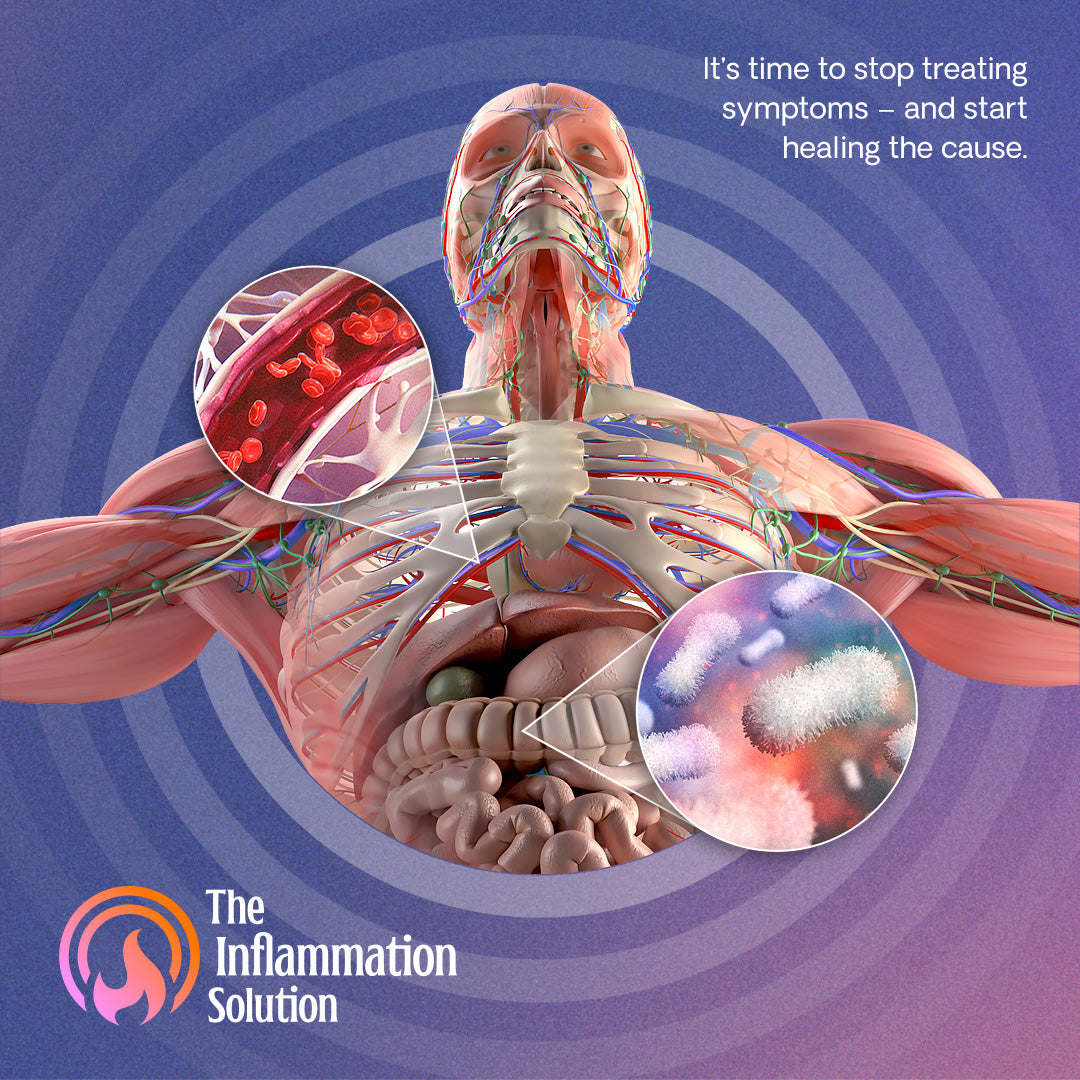
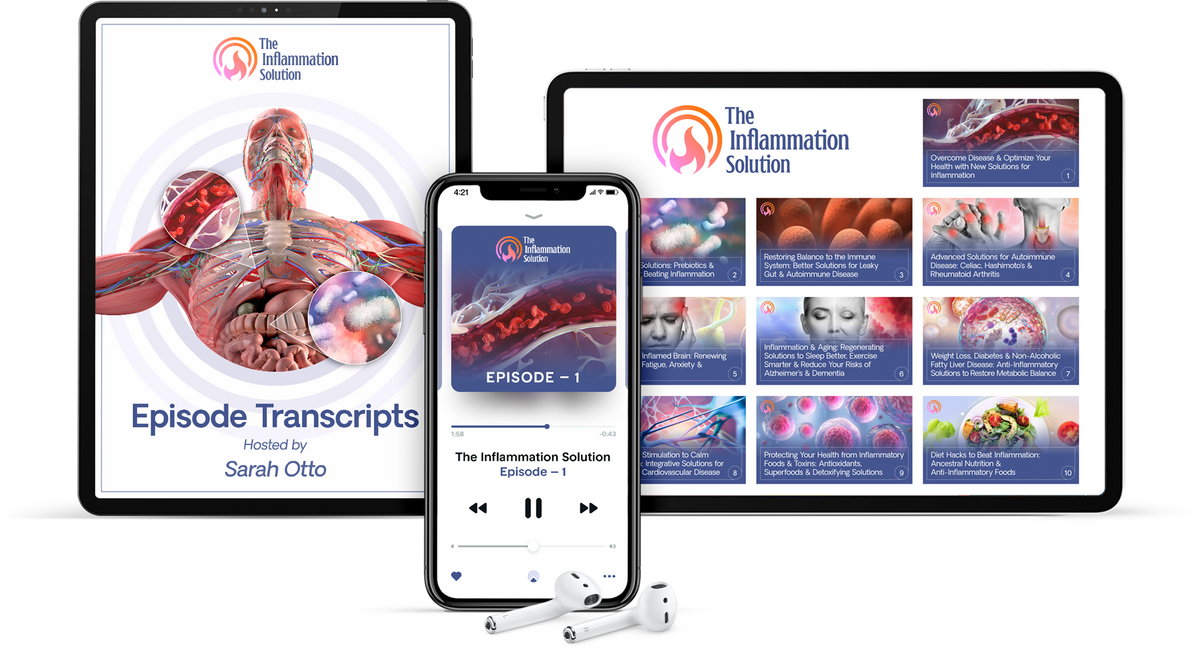
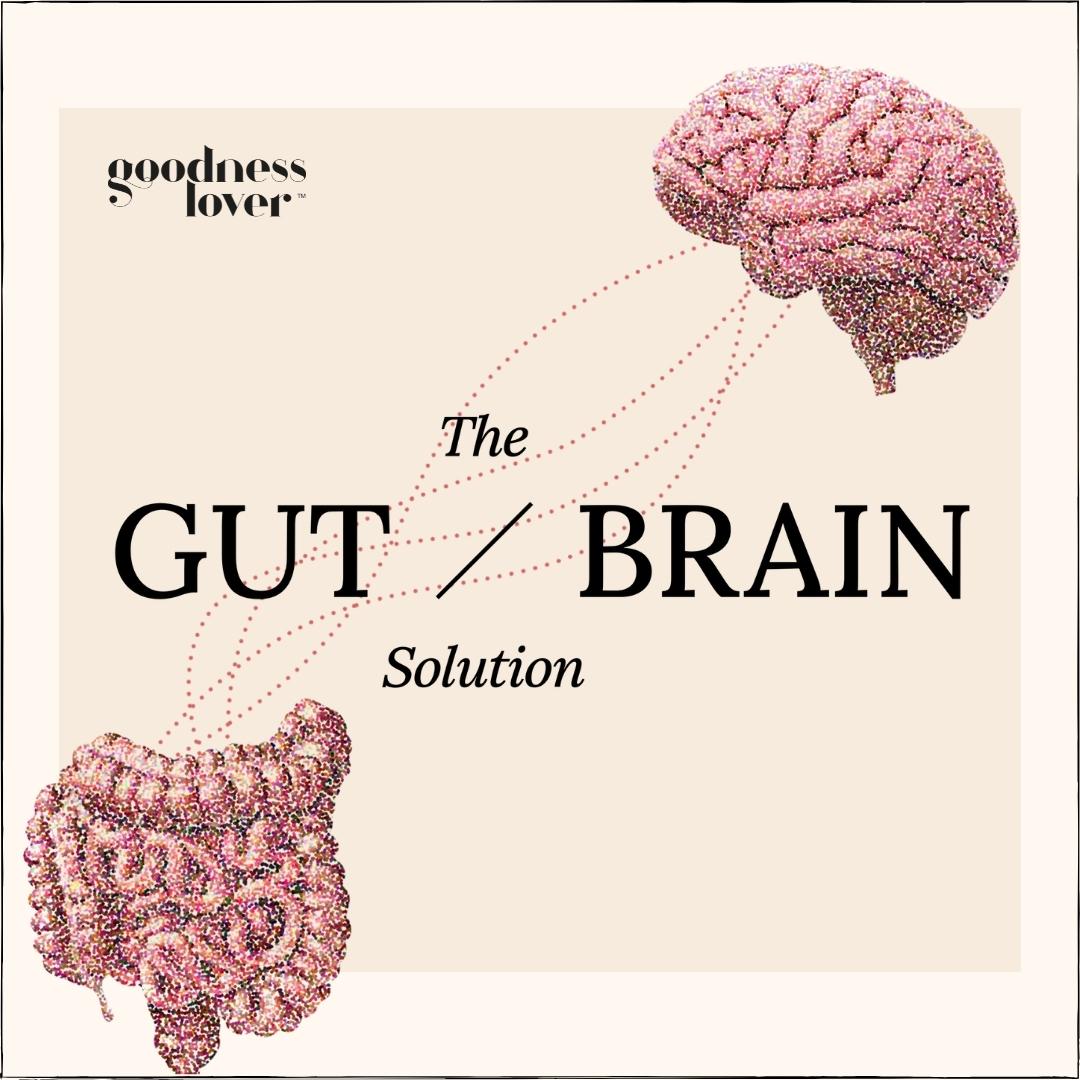


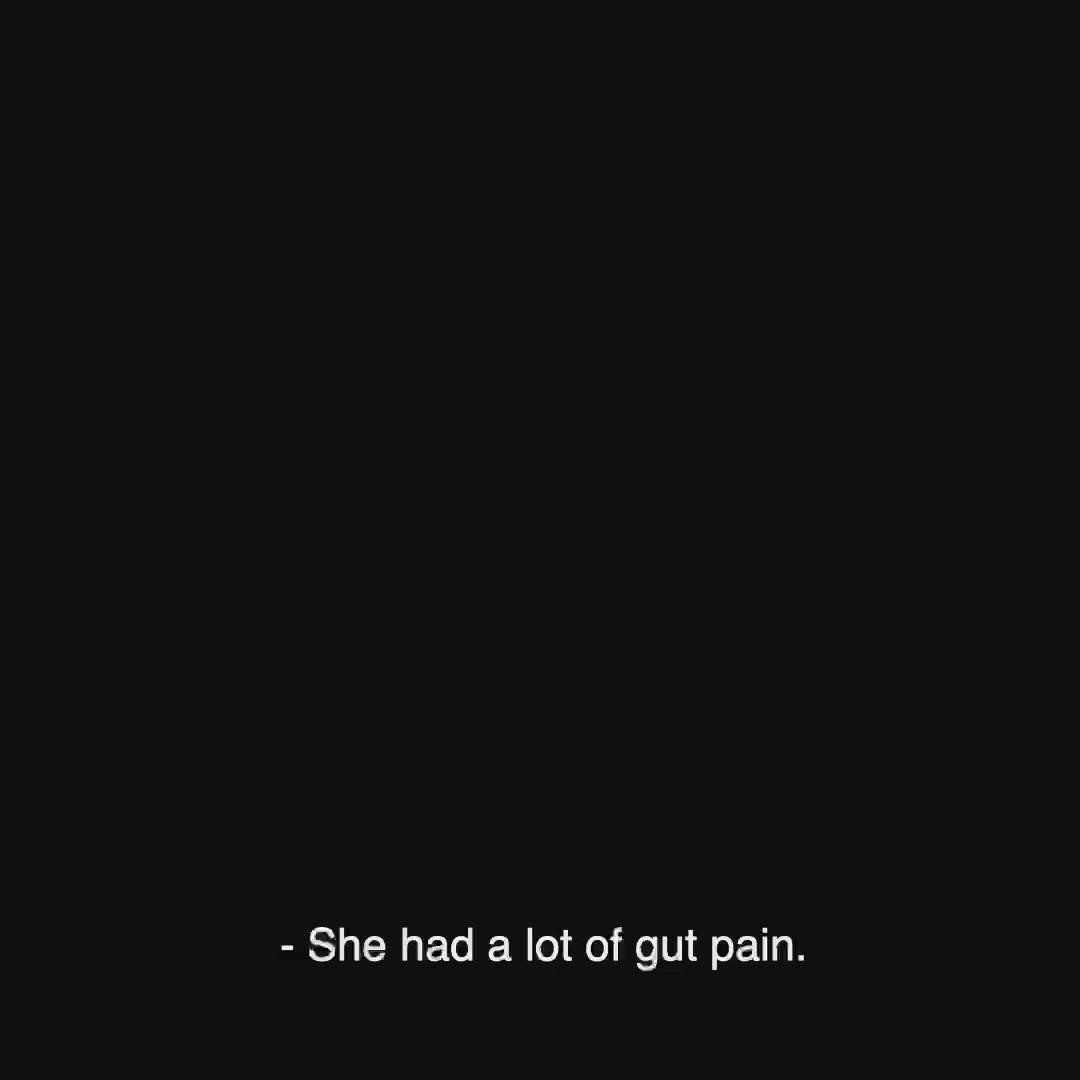
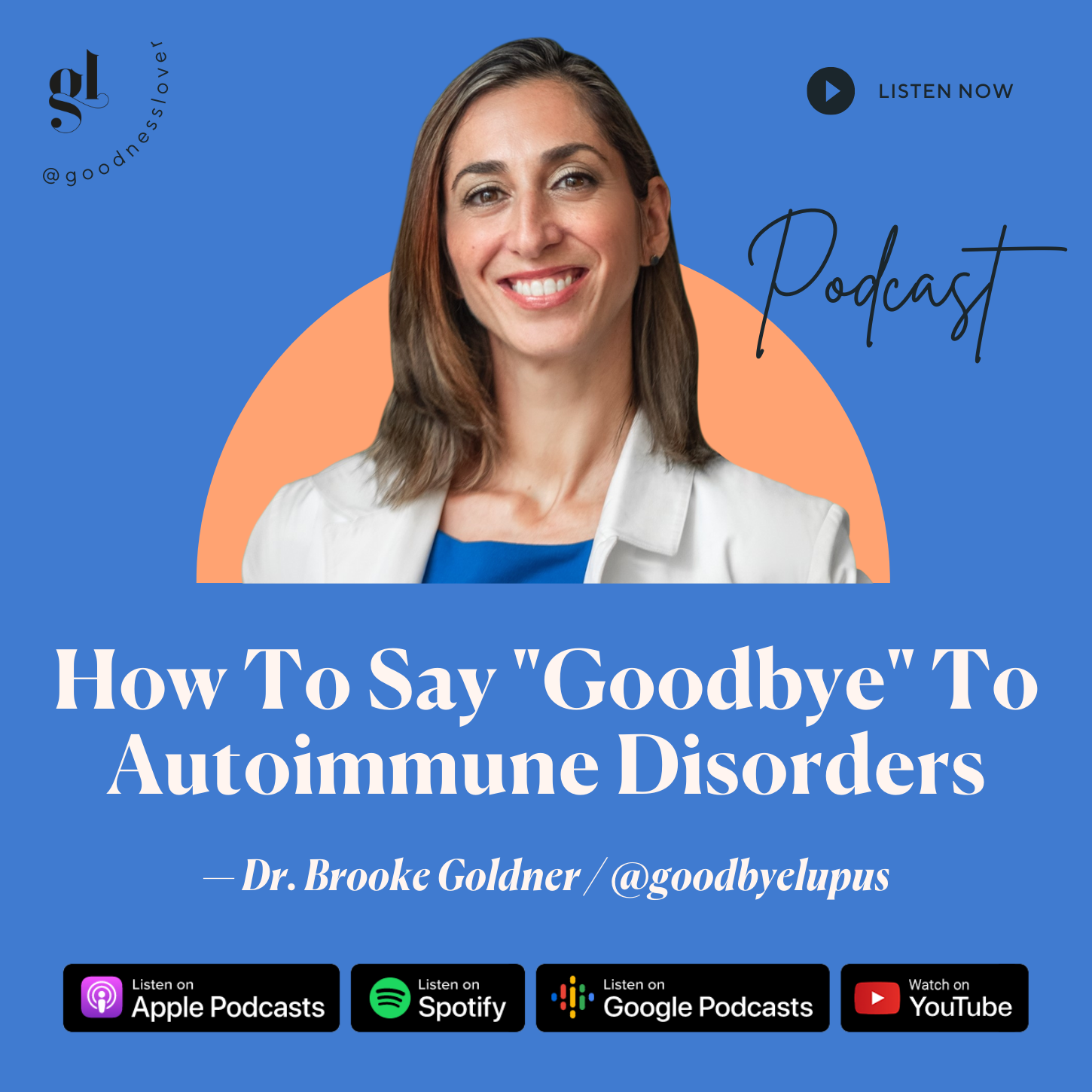
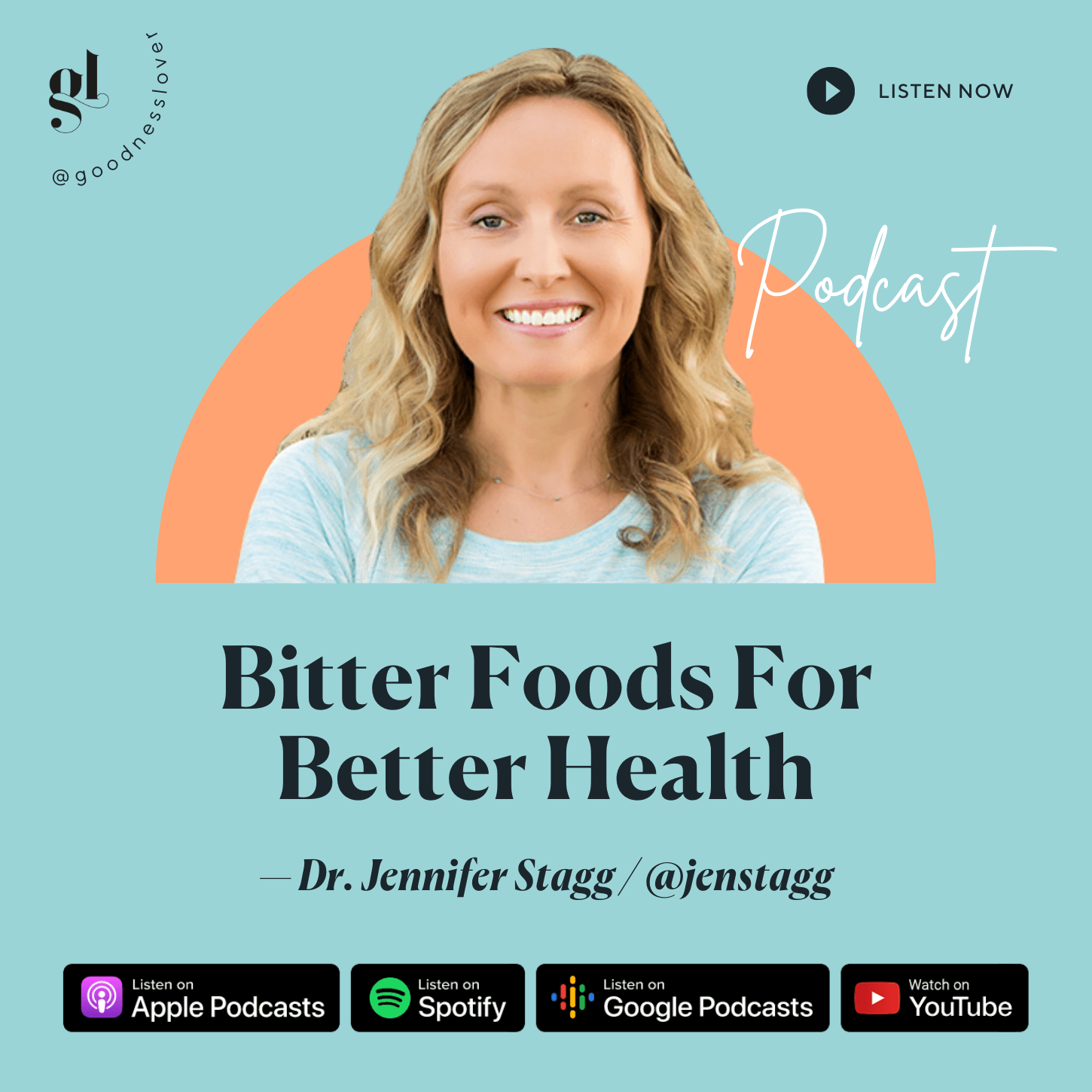

What Do You Think? Comment Below: